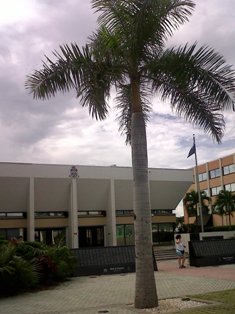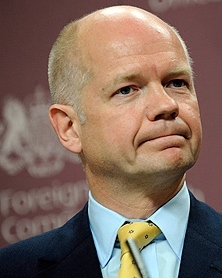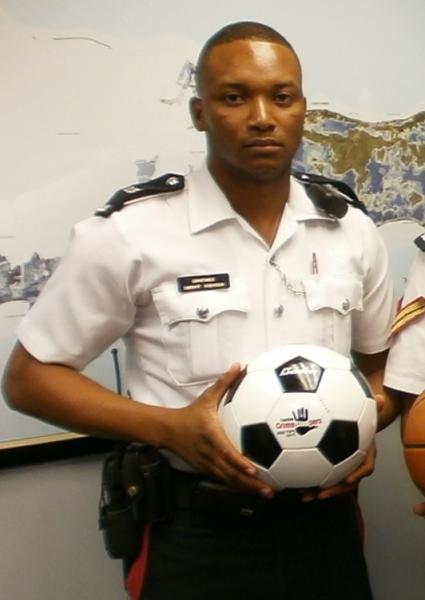Archive for January, 2012

Politics, governance and transparency
At the Cayman Business Outlook 2012 Conference the panel is asked to discuss “Politics, Good Governance and Transparency – What Does the Cayman Islands Report Card Say?”
“Politics”: a name for activities that some find unappealing, even disgraceful. But they go on in all real democracies. They are necessary for democracy, they are part of democracy.
For politicians and their supporters “politics” means trying to get elected or re-elected, the methods or stratagems that they use to win votes, and, for those who are elected, the performance of their constitutional responsibilities, either in government or in opposition. These activities necessarily involve disagreement, criticism, and confrontation — which is usually what people have in mind when they say that they do not like politics and do not want to get involved. The truth is that you cannot have democracy without some confrontation, though it is also true that political confrontation has a tendency to overheat.
Go to CNS Business toread the commentary and to comment
Vote in the CBO poll: Politics, Good Governance & Transparency: What does the Cayman Islands Report Card say?

Justice must comply with BoR
 (CNS): The issue of the length of time it takes for criminal matters to be dealt with by the justice system will become a major issue once the bill of rights comes into effect in November of this year, members of the judiciary have warned. The forthcoming bill of rights requires not just fairness in the system but timeliness as well, which may present a problem for Cayman’s overloaded court system. On Friday a case due for Summary Court appeal illustrated the problem when it was revealed that a convicted drug dealer had received his judgement two and a half years after his trial had opened, leaving the conviction vulnerable.
(CNS): The issue of the length of time it takes for criminal matters to be dealt with by the justice system will become a major issue once the bill of rights comes into effect in November of this year, members of the judiciary have warned. The forthcoming bill of rights requires not just fairness in the system but timeliness as well, which may present a problem for Cayman’s overloaded court system. On Friday a case due for Summary Court appeal illustrated the problem when it was revealed that a convicted drug dealer had received his judgement two and a half years after his trial had opened, leaving the conviction vulnerable.
Justice Alex Henderson, who has been warning attorneys on both sides of the system for some time about the potential problems delays in the system, no matter the reason, questioned if it could possibly be right for a judgement to be given two and a half years after the start of a trial as he warned, once again, of the legal challenges likely to arise over these kinds of delays.
The reasons for the delay in this particular case was explained by the attorneys involved, which began with an appeal against a decision by the magistrate a part way through the trial, which stayed proceedings until a Grand Court decision was made. Following this decision, a packed Summary Court docket and busy lawyers on both sides delayed the restart, which resulted in the decision being handed down so long after the case was first aired before the magistrate.
The judge, however, pointed out that once the bill of rights is implemented the constitutional rights of the defendants will over-ride the issues of defence and crown lawyers' packed diaries.
The appeal, which is due to be heard in February, is just one case among many that is impacted by the problems faced by the local court system, which does not have enough court rooms and magistrates to deal with the summary court criminal cases, nor does it have enough lawyers willing to take on legal aid cases. Less than ten percent of local advocates have submitted their names to be considered for public defending work.
Of the list of 50-plus lawyers that are willing to take legal aid cases from the 520 licensed attorneys in Cayman, most deal with family and divorce cases, leaving around a dozen lawyers to handle the massive case load of criminal work passing through the summary and grand courts. Cases are perpetually adjourned because defence counsel are simply unable to be in three or four places at once.
The onset of the bill of rights will also see the introduction of a formal duty solicitor programme at the police station to ensure that an attorney is always available 24/7 to advise those who have been arrested and face immediate police interview. This shift system will place a further burden on the limited pool of legal aid criminal lawyers.
The bill of rights forms part of the Cayman Islands Constitution 2009 and its implementation was delayed by three years to give the local government time to meet the legal requirements of the bill. It will be officially in effect, however, regardless of whether or not government is ready, by November of this year.

TCI investigators make another arrest in fraud case
(CNS): Officials in the Turks and Caicos Islands confirmed that another arrest was made this week by investigating team which is delving into allegations of corruption and misappropriation of government cash in the UK overseas territory. “A 47 year old man was arrested on Tuesday by the Special Investigation Prosecution Team (SIPT) in relation to their on-going investigation. He was released on police bail pending further inquires,” the spokesperson from the TCI governor’s office stated. The investigation which is said to have cost around $17.5million so far and included several charges against four former government ministers and the islands investors.
The investigators have reportedly recovered funds during the probe from unpaid Crown land leases, underpaid stamp duty for land transfers, civil settlements of criminal charges, and recovery of Crown land that was illegally leased or granted.
There were no further details available regarding the identity of the latest person arrested in the islands’ on-going two year bribery, fraud and corruption scandal.

Witness accused of lies
 (CNS): The defence counsel representing Raziel Jeffers in his trial for the murder of Marcus Ebanks and the attempted murder of four other boys said the crown’s key witness in the case against him was lying. Peter Champagnie accused paraplegic teen, Adryan Powell, who was shot in the spine on the night of the killing, of being a witness of “untruth” as he crossed examined him on behalf of Jeffers. The defence counsel suggested that, given the lighting, the fact he was shot and lying on the ground face down bleeding from a wound in his face in poor light over five feet away, it was “nigh on impossible” for the teen to identify the gunman.
(CNS): The defence counsel representing Raziel Jeffers in his trial for the murder of Marcus Ebanks and the attempted murder of four other boys said the crown’s key witness in the case against him was lying. Peter Champagnie accused paraplegic teen, Adryan Powell, who was shot in the spine on the night of the killing, of being a witness of “untruth” as he crossed examined him on behalf of Jeffers. The defence counsel suggested that, given the lighting, the fact he was shot and lying on the ground face down bleeding from a wound in his face in poor light over five feet away, it was “nigh on impossible” for the teen to identify the gunman.
During his questioning of the young witness, who gave his evidence via video link, about the night he and his friends were gunned down outside a house in Bonaventure Road West Bay, on 8 July 2009, Champagnie pressed Powell about his failure to identify his client as the gunman until his third statement. The lawyer suggested that the witness had come with the extra details late in the day to bolster the lies he had made in his third statement.
He said his claims in court about the lighting that night that he could see “perfect like daylight” were different to the description in his statement of just one light pole illuminating the scene. The defence attorney queried the inconsistencies between the three statements Powell had given to the police during the week after the shooting and his evidence in court but the teen remained steadfast in his account.
“I seen his face,” Powell told the attorney. “I am 100 percent positive it was Raziel.”
Despite the probing by the defence counsel, the young teen did not waiver in his certainty that the gunman he saw was the defendant. The defence attorney accused the teen of lying over the length of time he claimed to know his client. Powell has said that he knew Jeffers for around two and a half years before the incident and had played in a football tournament with him and had watched him play football.
However, Champagnie said that was a lie and he had never played with Jeffers. The lawyer also told the court that his client had been in custody for a “long time” prior to the shooting incident, only being released just over a year before his arrest in this case, so it was not possible for the witness to have known the defendant as long as he claimed.
During the questioning Powell maintained that Jeffers was the man who shot him. He told the court that he only remembered giving the police two statements and the court heard how the teenager was heavily drugged when he gave an account of the event in the immediate aftermath and again a few days later. So much so that he had to be assisted to sign his name at the bottom.
He told the court that he had been afraid to say who he had seen because he was worried that the man may come “and finish me off”. However, one week after the shooting when the teen learned that his close friend Marcus was dead and that he himself would be paralysed for the rest of his life, Powell said, “Then I never cared no more so I came forward.”
Champagnie said that this was the first time he had mentioned being afraid as he pointed to the third statement where Powell identified Jeffers for the first time one week after the shooting.
“I am suggesting you are a witness of untruth,” the lawyer said but the teen denied lying.
“I have no reason to lie,” he said. “Why would I put an innocent man in jail? It makes no sense,” he answered.
“You know the reason for that,” the lawyer concluded but did not indicate to the court the possible motive for Powell to lie.
As her son concluded his evidence, Powell’s mother, Tammy Tibbetts, was called to the stand and she recalled the harrowing night she got news of her son being shot. Having just arrived in Jamaica for a short break to celebrate her birthday, she revealed how she had begged and pleaded to get a flight back to Cayman.
Tibbetts also told the court how she had told her son of the death of his friend Marcus Ebanks when he had asked around 13 July and how a day or so later, on the 15 July, he had told her what he had seen that night. She said she then called the RCIPS so he could make his third statement.
She also confirmed that Powell had been extremely drowsy and heavily medicated when he made his first two statements to the police but much more alert when he gave the final account in which he identified Jeffers.
The case continues in court two on Wednesday morning with further crown witnesses from the scene of the shooting on 8 July.

Robbers in 3rd doorstep heist
 (CNS): In the third robbery of its kind in a matter of a few days the police were on the scene of a home in George Town on Thursday night. A police spokesperson said that an investigation had opened into a doorstep heist in George Town. Two armed men reportedly confronted a woman at about 7.25 pm tonight (Tuesday 17 January 2012) in Antoinette Ave, Webster Estates as she arrived home. The men demanded cash before making off with a small quantity of the woman's money and some jewellery. Police said no shots were fired and no-one was injured in the incident but no descriptions of the suspects were available at the time of the report.
(CNS): In the third robbery of its kind in a matter of a few days the police were on the scene of a home in George Town on Thursday night. A police spokesperson said that an investigation had opened into a doorstep heist in George Town. Two armed men reportedly confronted a woman at about 7.25 pm tonight (Tuesday 17 January 2012) in Antoinette Ave, Webster Estates as she arrived home. The men demanded cash before making off with a small quantity of the woman's money and some jewellery. Police said no shots were fired and no-one was injured in the incident but no descriptions of the suspects were available at the time of the report.
The robbery comes on the heels of two similar crimes at the weekend when a West Bay man was robbed in his own home Sunday evening by a masked armed robber at around 6:53 who stole his wallet and two cell phones and a mugging again on the doorstep of a home in Palm Dale. In the early hours of Sunday morning two masked men armed with a knife and a gun stole a cash bag containing an undisclosed sum before escaping on foot from a home owner as he arrived at his house.
Anyone who was in the area at the relevant time of the latest crime, tonight and has information which could assist police is asked to contact George Town police station on 949-4222, the RCIPS tip-line 949-7777, or Crime Stoppers 800-8477 (TIPS).

UK-Caribbean relations unequal says Hague
 (CNS): The UK’s relationship with the Caribbean is unequal and backward looking, the British Foreign Secretary said on the eve of his visit to the region. William Hague said the relationship should be a modern partnership and he wanted the UK and the Caribbean to cooperate more closely on what he described as the big international issues. As well as fighting crime and building resilient economies, he said the partnership should involve business, civil society and ordinary people. “I believe that our relationship in recent years has been too backward-looking and less equal than it should be for the twenty-first century,” Hague wrote on the FCO website.
(CNS): The UK’s relationship with the Caribbean is unequal and backward looking, the British Foreign Secretary said on the eve of his visit to the region. William Hague said the relationship should be a modern partnership and he wanted the UK and the Caribbean to cooperate more closely on what he described as the big international issues. As well as fighting crime and building resilient economies, he said the partnership should involve business, civil society and ordinary people. “I believe that our relationship in recent years has been too backward-looking and less equal than it should be for the twenty-first century,” Hague wrote on the FCO website.
“There is no need for this, as there are many areas where our interests, values and views coincide, where our people, companies and NGOs interact and where we work together in partnership to tackle the scourge of drugs and crime.”
The Conservative Cabinet minister said that the delegation he was leading this week was one of the strongest groups of UK Ministers and senior officials to attend a UK-Caribbean Ministerial Forum.
“This is both a sign of the strength the UK attaches to our enduring friendship with the Caribbean, and of our desire to use the Forum to mark a step change in our relationship. We believe this will herald a transition to a more modern, dynamic and forward looking affiliation,” he said.
Hague referred to what he called “the strong bonds that tie the UK and the region together” in all walks of life, from music to food, sport to prominent international figures. “We in the UK value these ties highly,” the minister stated.
He said that the UK government’s aid donation of £75million over four years was focused on creating a brighter future for the next generation but he noted there was also British private sector investment in the region.
“The private sector is the engine of growth for our economies, so it is right that they frame the questions that we politicians will discuss,” he said, noting that the first meeting would be with the business community. “The UK is a major investor in the Caribbean. BG has recently made a large investment in Trinidad & Tobago, and Pinewood Studios are building a state of the art film studio in the Dominican Republic with local partners Grupo Vinci.”
He said there were more business opportunities available, which was why Nick Baird, Chief Executive of UK Trade & Investment, was among the delegates and would lead a discussion with a range of UK and Caribbean businesses at the forum.
Hague added that 2012 provided an unprecedented opportunity for the UK and Caribbean to come together – in marking the Queen’s Diamond Jubilee, celebrating fifty years of independence in Jamaica Trinidad and Tobago, and in cheering on our athletes at the London 2012 Olympics.

Cops and crimestoppers encourage team spirit
 (CNS): The Windsor Park neighbourhoodofficer Police Constable Cardiff Robinson engaged in a little bit of preventative policing recently with a sporting neighbourhood initiative. The community officer got together with Crime Stoppers to provide a number of branded footballs and basketballs for the young people in the community. “Young people in Windsor Park are no different from young people anywhere else in the world – they are full of energy,”he said. “The challenge for us, and the wider community, is to ensure that the energy is channelled productively and that they don’t become tempted to get involved in anti-social behaviour or crime.”
(CNS): The Windsor Park neighbourhoodofficer Police Constable Cardiff Robinson engaged in a little bit of preventative policing recently with a sporting neighbourhood initiative. The community officer got together with Crime Stoppers to provide a number of branded footballs and basketballs for the young people in the community. “Young people in Windsor Park are no different from young people anywhere else in the world – they are full of energy,”he said. “The challenge for us, and the wider community, is to ensure that the energy is channelled productively and that they don’t become tempted to get involved in anti-social behaviour or crime.”
The officer who has been in the community for about a year explained the young people were short of this type of equipment.\\
“That’s why I approached Crime stoppers to ask if they could support a community sporting initiative and supply some much-needed equipment. We hope that the equipment provided will engender some team spirit in Windsor Park, and ultimately contribute to the social development of the neighbourhood,” PC Robinson added.
The handover of the equipment took in George Town last Thursday. The cost of the equipment was CI$400 and KPMG made the donation that allowed crimestoppers to acquire the sports equipment for programmes such as this.
Malcolm Ellis, Chairman of Cayman Crime Stoppers, said: “The Cayman Crime Stoppers board is very happy to support this initiative to provide young people with a positive outlet for their energy, and to see our police officers acting as role models at a community level. The equipment is branded with the Crime Stoppers logo and the 800-TIPS hotline and so provides another way for us to remind everyone involved about our programme and how to provide anonymous tips.”
Level with IRS before FATCA, says tax expert
(CNS Business): A key difference between the most recent offshore voluntary disclosure programme announced by the US Internal Revenue Service and previous programmes is that it will run indefinitely, according to David Conen of KPMG (Cayman Islands). Confirming that he has had clients who have made use of the previous programmes, Conen told CNS Business that the latest programme will lead into the implementation of the Foreign Account Tax Compliance Act (FATCA) in two years’ time, when the US will be requiring considerably more reporting and compliance for offshore accounts. He said people were realising now that they should be on the right side of the US authorities, especially while reduced penalties are in place under the current voluntary disclosure programme. Read more on CNS Business

Public sector fraud on increase says new survey
 (CNS): An international survey by PricewaterhouseCoopers has revealed that fraud continues to be a persistent threat in the public sector the world over with asset misappropriation, accounting fraud and bribery and corruption the top three frauds. The report said that a large number of frauds are committed by employees that organisations trust and have access to significant amounts of data. It also found a rise in procurement frauds in the last twelve months. The survey shows that despite being the most likely perpetrators of fraud, public sector workers are less likely to be dismissed over fraudulent acts than other sectors.
(CNS): An international survey by PricewaterhouseCoopers has revealed that fraud continues to be a persistent threat in the public sector the world over with asset misappropriation, accounting fraud and bribery and corruption the top three frauds. The report said that a large number of frauds are committed by employees that organisations trust and have access to significant amounts of data. It also found a rise in procurement frauds in the last twelve months. The survey shows that despite being the most likely perpetrators of fraud, public sector workers are less likely to be dismissed over fraudulent acts than other sectors.
PwC said it was easy for individuals to simply transfer departments, leaving them free to commit their crimes over and over again.
“If public sector organisations are to adopt a zero tolerance approach to economic crime, they need to consider seriously the actions taken against fraudulent behaviour," the consultants warned in the report entitled, Fighting fraud in government.
During the survey the respondents from 36 different jurisdictions were asked ‘core’ questions on economic crime. Of the government and public sector respondents, 46% reported experiencing one or more incidents of economic crime in the last year, up by more than 10% on the results of the last survey conducted on the subject by PwC in 2009 and well above the average of 34% across the private sector.
“As the public service market becomes more open and suppliers more diverse with more voluntary and private sector organisations become involved in delivering public services, procurement departments will also face a whole raft of new challenges to ensure that the quality and cost-efficiency of the services being delivered are not compromised,” the report’s authors stated.
PwC warned that supplier frauds still occur because prevention is often reliant on the vigilance of employees and traditional detective measures could easily miss fraud that is hidden within millions of transactions and thousands of suppliers.
“Most procurement frauds are conducted over a period of several years and it can be hard for organisations to recoup any losses. It is, however, an area where new technologies, and, in particular, advanced data analytics, can bring real benefits in detecting fraud and identifying clusters of unusual transactions,” the report stated.
The survey also revealed a marked increase in cyber-crime. In previous global economic crime surveys, PwC said respondents reported very low levels of this type of crime and results were combined ‘other types of fraud’ in the surveys. With the increasing concerns around cyber threats, however, in this year’s report cyber-crime was rated as a separate category of fraud with 14% of respondents in the public sector reporting having experienced a cybercrime attack in the past 12 months.
The consultants warned that governments cannot ignore the growing risk, not least because of the personal and confidential data held that made them prime targets for attack.

Elite steal away win in Digicel cup first leg
(CIFA): The Digicel Cup semi- finals’ first leg brought to the crowd at The Annex two very competitive games which awarded wins to the best positioned teams in the Cayman Premier League. In the first match, Elite suffered a goal in the 21st minute but with a quick recover just 8 minutes after, equalized in a penalty kick taken by Jairo Sanchez. The second half showed the same balance from the first 45 minutes but it was Elite which scored the winning goal on the 76th minute by Alex Belcher. The second match was similar in challenge and excitement as the first game; Roma took the advantage in the 27th minutes with a free-kick from Narval Buchanan.
Bodden Town never gave up and the continuous effort got paid off in the dying minutes when Theron Wood scored at the 86th minute and Wesley Robinson scored the winning goal at the additional time for Bodden Town fan’s big celebration.
The second leg of semifinal matches will be on 5 February 2012 at the Annex. Roma UFC will play Bodden Town FC at 5:00pm and Elite SC will play Scholars Int’l at 7:00pm.
See fixtures below